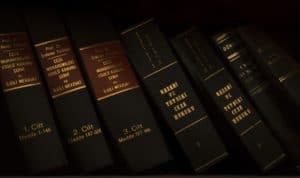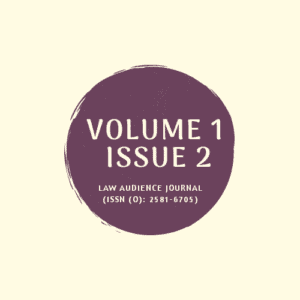CASE BRIEFED BY: MR. P. ARAVIND KUMAR, B.B.A.LL.B, 3RD STUDENT AT LOVELY PROFESSIONAL UNIVERSITY & CAMPUS AMBASSADOR AT LAW AUDIENCE & EDITED BY: MS. SAKSHI SONKER, 4TH YEAR STUDENT, RAJIV GANDHI NATIONAL UNIVERSITY OF LAW, PUNJAB & ASSISTANT EDITOR AT LAW AUDIENCE.
SMT. SAROJ RANI VS. SUDARSHAN KUMAR CHADHA (1984) AIR 1562: 1985 SCR (1) 303: JUDGES: S. MUKHARJI, SABHYASACHI (J): AUTHOR OF JUDGEMENT: S. MUKHARJI.
I. BRIEF FACTS:
- The petition was led by the wife for restitution of conjugal rights under Section 9 of the Hindu Marriage Act, 1955.
- Her husband consenting to the passing of a decree for the same was passed. After a period of 1-year husband led a petition under Section 13 of the Hindu Marriage Act, 1955 against the appellant for divorce on the ground that though one year had elapsed from the date of passing the decree for restitution of conjugal rights as no actual cohabitation had taken place between the parties.
- While the period of cohabitation wife was taken to the house of the husband by her parents one month after the decree and that the husband kept her in the house for two days and then she was again turned out.
- Considering this District Court as the decree for restitution of conjugal rights was passed by the consent of the parties, the husband was not entitled to a decree for divorce. The appeal was led by Respondent to High Court for a decree of divorce.
- On appeal, case came before Division Bench of High Court that a that a consent decree could not be termed to be a collusive, decree so as to disentitle the petitioner to a decree for restitution of conjugal rights, and that in view of the language of Section 23 if the Court had tried to make conciliation between the parties and conciliation had been ordered, the husband was not disentitled to get a decree.
- The appeal was allowed, and the husband was granted a decree of divorce. The appeal for the same is here.
II. ISSUES BEFORE THE HON’BLE COURT:
- Husband whether entitled to a decree of divorce or not?
- Constitutionality of Section 9 of Hindu Marriage Act, 1955.
III. LAWS APPLIED:
- Section 9 of the Hindu Marriage Act, 1955.
- Section 23 of the Hindu Marriage Act, 1955.
- Section 23(1) of the Hindu Marriage Act, 1955.
- Article 21 of the constitution of India, 1949.
- Section 13(1) of the Hindu Marriage Act, 1955.
IV. CASES REFERRED:
- Dharmendra Kumar v. Usha Kumar,[1] in order to be a “wrong” within the meaning of s.23(1)(a) the conduct alleged should be more than a mere disinclination to agree to an offer of reunion, it must be misconduct serious enough to justify denial of the relief to which the husband or the wife is otherwise entitled. Mere noncompliance with a decree for restitution does not constitute wrong within the meaning of section 23(1)(a).
- Smt. Harvinder Kaur v. Harmander Singh Choudhry[2] Approved. The learned judge noted that the object of restitution decree was to bring about cohabitation between the estranged parties so that they could live together in the matrimonial home in amity. The leading idea of Section 9 was to preserve the marriage. From the de nition of cohabitation and consortium, it appeared to the learned judge that sexual intercourse was one of the elements that went to make up the marriage, but that was not the summum bonum.
- T. Sareetha v. Venkata Subbaiah[3] Over-ruled. Learned judge observed that a decree for restitution of conjugal rights constituted the grossest form of violation of any individual right to privacy. According to the learned judge, it denied the woman her free choice whether, when and how her body was to become the vehicle for the procreation of another human being. A decree for restitution of conjugal rights deprived, according to the learned judge, a woman of control over her choice as and when and by whom the various parts of her body should be allowed to be sensed. The woman loses her control over her most intimate decisions.
- Joginder Singh v. Smt. Pushpa[4]Approved. A consent decree in all cases could not be said to be a collusive decree and where the parties had agreed to pass off a decree after attempts had been made to settle the matter
V. APPELLANT’S CONTENTIONS:
- Other Party could not take advantage of his ‘wrong’ because of having refused cohabitation in the execution of the decree. (Main contention)
- It was submitted that the respondent/husband had with the intention of ultimately having divorce allowed the wife a decree for the restitution of conjugal rights knowing well that this decree he would not honour and thereby he misled the wife and the Court and thereafter refused to cohabitate with the wife and now, it was submitted, cannot be allowed to take advantage of his ‘wrong’.
- Assail the factual finding of the trial court that there was no cohabitation after the decree for restitution of conjugal rights.
- The decree for restitution of conjugal rights was in a sense collusive decree
- Challenged the constitutionality of Section 9 0f the Hindu Marriage Act, 1955 relying on the case of Sareetha v. Venkata Subbaiah, A.I.R.1983 Andhra Pradesh[5], which was overruled by this court.
VI. RESPONDENT’S CONTENTIONS:
- Restitution of Conjugal rights is constitutional under Harvinder Kaur v. Harmander Singh Choudhary, A.I.R.1984 Delhi[6], and Approved by the court.
VII. FINDINGS OF COURT:
- From the facts on record, it appeared to the court that there was no collusion between the wife’s petition against the husband on certain allegations, the husband denied these allegations. He stated that he was willing to take the wife back. A decree on that basis was passed.
- Before the Division Bench of behalf of the appellant-wife, counsel did not assail the factual finding of the Trial Court that there was no cohabitation after the decree for restitution of conjugal rights nor did counsel press the ground of defense namely that the appellant could not take advantage of his ‘wrong’ because of having refused cohabitation in execution of the decree.
- There is, however, no whisper of these allegations as provided under Appellant’s Contention no.2 in the pleading. As usual, on this being pointed out, the counsel prayed that he should be given an opportunity of amending his pleadings and, the parties, with the usual plea, should not suffer for the mistake of the lawyers.
- On Respondent’s contention no.2: Firstly there was no pleading, secondly this ground was not urged before any of the courts below which is a question of fact, thirdly the facts pleaded and the allegations made by the wife in the trial court and before the Division Bench were contrary to the facts now sought to be urged in support of her appeal.
- There are enough safeguards in Section 9 to prevent it from being a tyranny. The importance of the concept of conjugal rights can be viewed in the light of Law Commission-71st Report on the Hindu Marriage Act, 1955- “Irretrievable Breakdown of Marriage as a Ground of Divorce”.[7]
VIII. HELD:
- Therefore, quite apart from the fact that there was no pleading which a serious and fatal mistake is, there is no scope of giving any opportunity of amending the pleadings. Therefore “NO AMENDMENTS IN PLEADINGS”.
- The further court said that we reach this conclusion without any mental compunction because it is evident that for whatever be the reason this marriage has broken down and the parties can no longer live together as husband and wife if such is the situation it is better to close the chapter.
- This is so as an inducement by the court in appropriate case when the court has decreed restitution for conjugal rights and that the court can only decree if there is no just reason for not passing decree for restitution of conjugal rights to offer inducement for the husband or wife to live together in order to give them an opportunity to settle up the matter amicably. It serves a social purpose as an aid to the prevention of break-up of the marriage. It cannot be viewed in the manner the learned single judge of Andhra Pradesh High Court has viewed it and we are therefore unable to accept the position that Section 9 of the said Act is violative of Article 14 or Article 21 of the Constitution if the purpose of the decree for restitution of conjugal rights in the said Act is understood in its proper perspective and if the method of its execution in cases of disobedience is kept in view.
- Section 9 of the Hindu Marriage Act, 1955 is constitutional.
- Even after the final decree of divorce, the husband would continue to pay maintenance to the wife until she remarries and would maintain the one living daughter of the marriage. Wife would be entitled to such maintenance only until she remarries and the daughter Menka to her maintenance until she is married. Respondent would pay costs of this appeal to the appellant assessed at Rs. 1500.
- Appeal dismissed.
[1] [1978] 1 SCR 315
[2] A.I.R.1984 Delhi 66
[3] A.I.R.1983 AP 356
[4] AIR 1969 P H 397
[5] Ibid 3
[6] Ibid 2
[7] http://www.legalservicesindia.com/article/676/Irretrievable-Breakdown-of-Marriage.html
Post Views: 12,512
![You are currently viewing SMT. SAROJ RANI VS. SUDARSHAN KUMAR CHADHA [CASE BRIEF]](https://www.lawaudience.com/wp-content/uploads/2019/01/20190125_131331_0000.png)


